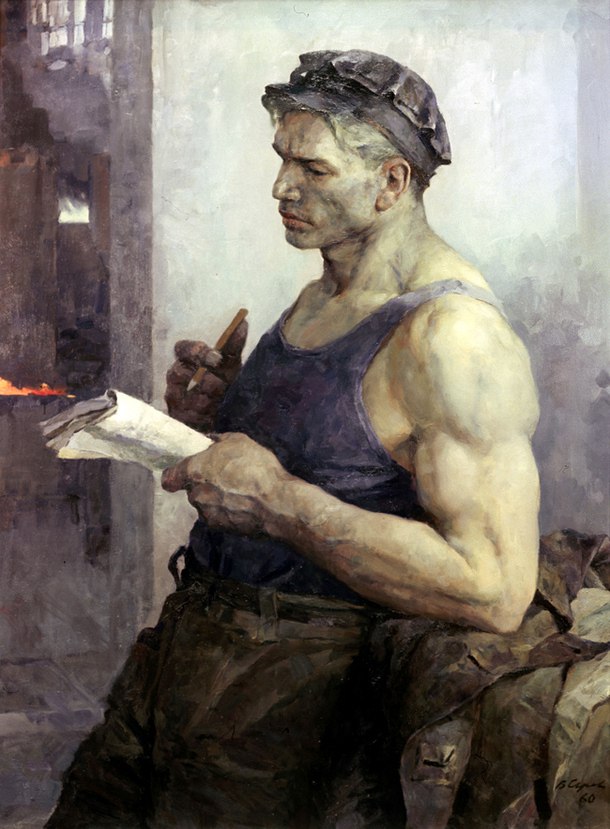- cross-posted to:
- [email protected]
- cross-posted to:
- [email protected]
He wasn’t angry about capitalism, he was angry about sacrilege.
I also have to point out, when libertarians say shit about trade, we always need to remind them that buying and selling things is not capitalism by itself.
So, don’t be libertarian, even if just for this one scene.
He does attack the rich consistently however and the ideal can be extrapolated, beside this one scene. Even the famous “It is easier for a camel to walk through the head of a needle then it is for a rich person to enter the Kingdom of Heaven”.
And look what came out of that.
I don’t know, Paul was based as fuck.
But then we got the Catholic church.
Not exactly. Jesus didn’t mind regular merchants, though he’s pretty clear and consistent that a love of wealth is incompatible with a love of God. The deal with the temple is that they were basically selling God, selling salvation, and profiteering off of faith. IIRC, you couldn’t bring animals or offerings to the temple, you had to buy them there, their lambs, their doves, etc, because how can they make money if everyone just brings their stuff? It’s pretty telling that after years of doing his thing, Jesus finally gets merc’d just days after this happened. Thankfully, though, we all learned this lesson and never ever did anything like this ever again. =)
“On reaching Jerusalem, Jesus entered the temple courts and began driving out those who were buying and selling there. He overturned the tables of the money changers and the benches of those selling doves”
Sounds like losing his shit with the capitalists to me.
I mean, only if you completely divorce that from all context. The temple was supposed to be a place of solemn worship, and that was being lost in the face of money changing (the Jews didn’t fancy giving God Roman money with the faces of emperors stamped on it) and selling sacrificial offerings. It became a place a business first. Jesus would doubtless beat the brakes off of a lot of American Christianity with its giant steel girder crosses, enormous state-of-the-art presentation halls, and pastors zooming around in private jets living in giant manors, telling people to just go ahead and send their rent money to the hotline. Jesus saw the corrupting influence that money has on religious institutions and made it clear that it was a line he felt shouldn’t be crossed. The intersection between money and faith is a theme that pops up all over the New Testament, and it seems probable that the Romans brought unbelievable wealth to some people in that region (and may have even elevated the overall prosperity of the people in that region at the time by connecting them into their trade network). Each time it comes up, Jesus is very clear that the two don’t mix. You can have God or money; not both. That said, Jesus doesn’t really beef with merchants outside of the temple, except to say that it’s easier for a camel to pass through the eye of a needle than for a rich man to enter heaven and advise them to choose a life of righteous poverty.
There weren’t any capitalists around the time of Jesus’ death. The word “Capitalist” refers to someone who extracts surplus value from labour by owning the capital - either machines and factories, or the financial means thereto - which workers operate. A capitalist can only exist in the context of industrialing or industrialised society, and there were no such societies during the Bronze Age.
I’m not sure about that, weren’t nobles/landlords capitalists by extracting a rent from the ‘working class’/laborers ?
No, obviously there were exploiters and rent-seekers during the Bronze Age, but capital has a distinct dynamic as opposed to other means of production such as land, namely that it can be expanded: A hectar of land in an agrarian society only produces so much grain, vegetables, or livestock every year, but the only upper limit for the production of machinery is the amount of available labour.
A land-owner can only expand at the expense of other land-owners, while capitalists also can - and are even required to - expand at the expense of the workers they employ. They use machinery and labour to obtain wealth and then use that to obtain more machinery, and so on. This arrangement has a dynamic of exponential growth, which no previous form of production had, and therefore capitalists are in a position to shape society in vast excess of what land-owners can and could do.
The Joel Osteen brand of capitalism. Heretical religious capitalism.
Or movie theatre capitalism
Buying salvation was basically the tent pole of Catholicism as well prior to Protestant reformation which essentially (incredibly long story short) changed things a bit.
deleted by creator
Side point, but here’s a neat article by Roland Boer on the intersections of communism, christianity, and christmas.
Technically it wasn’t Capitalism back then
Akchually(, edit : should have read the other comments before posting, they explained it better than i do in the following paragraph).
I.m.h.o., the Christ criticized their lack of respect towards God, because if they were really faithful they wouldn’t care about personal wealth in comparison to the Almighty, once you start serving the power of finance instead of God then you stop serving God, you can’t have two masters.
But “don’t do unto others what you wouldn’t want to be done unto you”, or prior to that “Thou shall not steal”, is already all that we need to condemn the parasitic practice of lucrative properties, they’ll gain money for “investing”, as if it was risky(, not in the case of interests, nor for rent, but if they want to take a risk with actions by selling them at a higher price, then don’t give them dividends that should belong to the workers, and/or eventually R&D and/or consumers), as well as salary differences, even companies with limited responsability have circumvented this concept of risk and, i mean, all the negative externalities should be enough to condemn the current application of neoliberalism(, not to say capitalism in general).
We oppose capitalism because it’s immoral, if we’re right then believers should have our back(, since morals/virtues are their domain). Since they don’t it’s either a mistake on our part or a lack of communist (counter-)propaganda.








